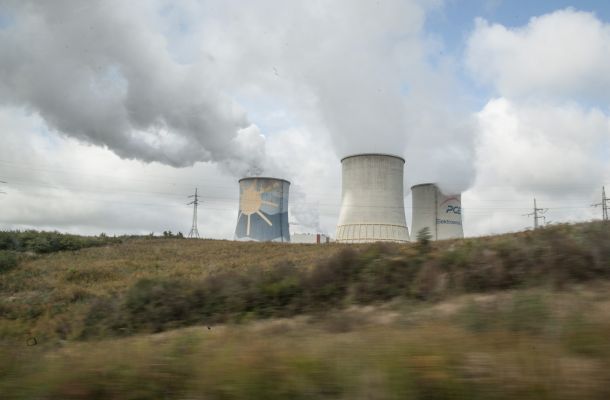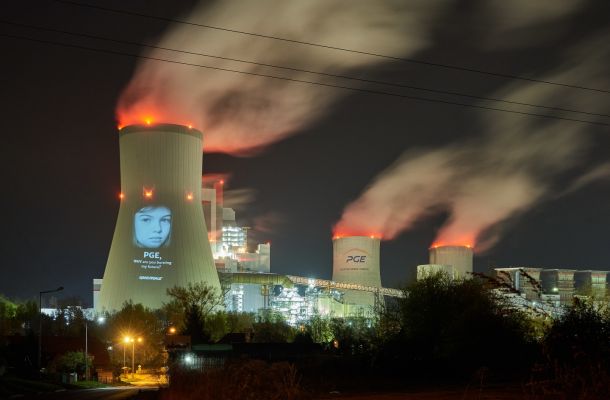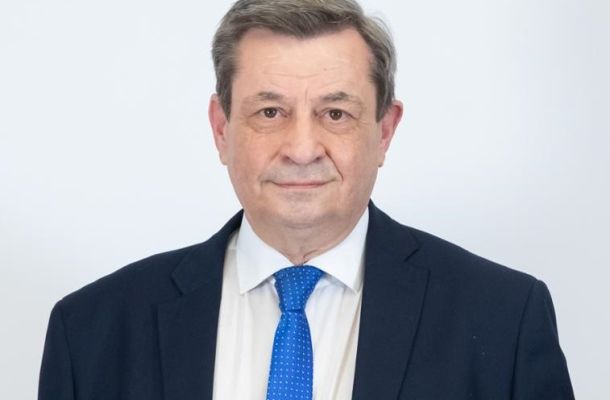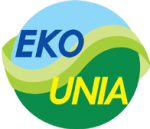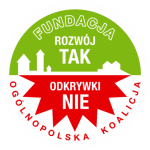PGE deprives region’s opportunity to develop
Polish PGE is not letting go and still keeps protecting further exploitation of Turów’s outcrop, ignoring its impact on water and the environment. The company authorities admit that a departure from coal is necessary, for instance because of economic reasons, but at the same time they are opting for the continuation of coal mining in the Bogatynia region. By this, they are blocking the opportunity of the local societies to raise funds on a just transformation.
1. Representatives of 3 countries took part in consultations
On July 22nd the consultations of “preliminary overview of significant water management issues identified on the International Oder River Basin District (MODO)” have finished. Organizations, institutions, citizens and local authorities from Poland, the Czech Republic and Germany have expressed their concerns, underlining the negative impact of the Turów open pit mine on the quality of water in the three countries. It was highlighted that the activity of Turów, as well as other open pits in the region is an international problem, both involving the level of ground waters and their contamination (including the sulfuric acid and heavy metals).
The participants of the procedure proved that “the activity of the Turów mine is negatively affecting the quantity of the bodies of water in the whole basin, all including Poland, the Czech Republic and Germany. Because of the mining processes in Poland, it is not possible to reach a good quantitative status on areas of Czech and German ground waters affected by them until the year 2027, and there is still a risk of the issue getting worse”.
The foundation demanded to include the negative impact of the Turów mine on the groundwater quantitative status as a problem of an above-regional importance and asked MODO to become the main part in solving this problem. “Solving this problem cannot be left only for bilateral committees of cross-border waters, because they don’t have the authority to create international plans of the Odra basin.”
Source:
2. Turów is draining Saxony
The recent expertise done by a hydrogeologist dr. Sylwester Kraśnicki shows that Trurów is not only stealing water from the Czechs, but also from the Germans. In regard to the plans of expansion of the mine, Kraśnicki examined its transboundary impact on the quality and quantity of ground waters. As revealed by research, both the drainage of the German part of Zittau basin, and the direct heavy metal contamination of watercourses like Nysa and Odra, are worsening.
Daniel Gerber, a German spokesperson of the parliamentary group for energy and the environment and a member of the committee for energy, climate protection, the environment and agriculture is explaining:
The research shows a clear correlation between the groundwater lowering and the mining activity of Turów. The numbers are frightening. Groundwaters in the border area have already lowered by 40 meters. Deeper layers of rock, which were water-bearing, have been completely dried out throughout just as little as 30 years.
The research done by Kraśnicki is another proof that a water crisis is affecting Zittau. The climate crisis and further drying of the area caused by open-cast mining are going to expand those problems.
German MEP Anna Cavazzini comments:
“The results of this research are, for the first time, giving us a complex insight both into the Saxon and the international dimension of Turów. The effects of open-cast mining are not ending on the border. The risk of contamination is flowing through the rivers past the country borders.”
Sources:
- https://www.annacavazzini.eu/braunkohletagebau-turow-graebt-sachsen-das-wasser-ab/
- https://greenpeace.berlin/wp-content/uploads/2020/06/%C3%9Cbersetzung-Studie-Sylwester-Kra%C5%9Bnicki-zur-deutschen-Grundwassersituation-durch-Erweiterung-des-Tagebaus-Tur%C3%B3w.pdf
- https://www.radiolausitz.de/beitrag/warnung-vor-tagebau-erweiterung-bei-zittau-648047/
- https://www.l-iz.de/wirtschaft/metropolregion/2020/06/Der-polnische-Braunkohletagebau-Turow-graebt-der-Region-Zittau-das-Wasser-ab-336789
3. The fighting on petitions continues
On July 14th the Petitions Committee is planning an examination of the Czech petition regarding the risk of losing access to drinking water in the Liberec region, caused by the expansion of the brown coal mines in Turów. Meanwhile, another petition was brought up to the committee, this time submitted by the local authorities from Poland and supported by PGE, who are against the closure of the mine and power plant Turów in Bogatynia. It will, most probably, be examined on the same meeting of the Petition Committee.
The representatives of local authorities expressed “concerns about the activities of our Czech neighbors, whose aim is to close the mining and energy complex Turów”. They are worrying that it may lead to the closure of the mine and power plant, as well as potential job losses.
Self-governments are ignoring the voices of non-governmental organizations, which are, for over two years, trying to convince the Zgorzelecki district and Bogatynia that the best guarantee of employment in the region is using the EU funds intended for Just Transition.
PGE, still sticking to the prolongation of the Turów’s concession, is taking away Bogatynia’s chance to develop and properly prepare to the inevitable transformation. If the local authorities fail to understand early enough that coal mining doesn’t have any future, they will proverbially get the short end of the stick. PGE, sooner or later, will be forced to close the complex due to economic reasons. Moreover, the consequences of the energy partnership authorities’ ignorance will mostly affect the residents of the region.
Meanwhile, according to the expertise of professor Jan Popczyk, it follows that the green transformation in the region is possible and will ensure more jobs than there are currently provided by the Turów complex.
Sources:
4. PGE is trying to prove that Turów has no influence on water
Polish PGE is doing everything to prove that Turów has no influence on the state of waters in the Czech Republic and Germany and denies studies based on reliable research. On June 22nd 2020, Polish web portal sponsored by PGE “Cire” issued a report stating that „the Turów mine has a negligible impact on hydrological conditions on the Czech side”.
The article by Cire also states that "the impact on water resources at the Czech border includes meteorological conditions, not the operation of the Turów Mine, belonging to the PGE GiEK company from the PGE Group".
"However, in a world modified by a man and climate change, droughts are affected by their combined impact," the report reads. The report however never mentioned that one of main reasons for climate change is coal itself. The Turów mine and power plant contribute directly to deepening the climate crisis by emitting huge amounts of carbon dioxide. In the period of 2020 - 2038, combustion of coal extracted in the Turów mine emits at least 10.3 million tonnes of CO2 annually.
Moreover, the report's authors examined the impact of climate change on surface water status, but did not study the impact on groundwater or the impact of the Turów open pit mine itself on the status of surface and groundwater. Despite this fact, they use the results of their analysis to deny in the eyes of Polish public opinion the results of studies showing the negative impact of Turow on waters.
The report also does not mention that the open pit is associated with heavy metals. The Turów Mine discharges numerous toxic elements into the waters, including mercury (over 330 kg in 2017, of which approx. 100 kg into water and soil). Mercury is one of the particularly toxic substances that is associated with bioaccumulation and its elimination from the environment, which is one of the Water Framework Directive goals.
PGE is a Polish state owned company and Polish government defend its interests. The report available from the State Institute of Meteorology and Water Management is therefore difficult to be objective. Although the institution enjoys an established reputation, the reliability of the report raises doubts, especially since it is being tried to be used to deny other studies dedicated to show the impact on open pit mining on water.
Research on the Turów impact on water status and the environment:
- https://energyandcleanair.org/wp/wp-content/uploads/2020/03/Air-quality-toxic-and-health-impacts-of-the-Turow-power-plant_publication.pdf
- http://plapdp.cz/PDP_LNO/II/1_TEXTOVA_CAST/LNO_II_TEXT.pdf
- https://greenpeace.berlin/wp-content/uploads/2020/06/%C3%9Cbersetzung-Studie-Sylwester-Kra%C5%9Bnicki-zur-deutschen-Grundwassersituation-durch-Erweiterung-des-Tagebaus-Tur%C3%B3w.pdf
Other sources:
- https://www.cire.pl/item,200277,1,0,0,0,0,0,niezalezna-opinia-imigw-pib-kopalnia-turow-ma-znikomy-wplyw-na-warunki-hydrologiczne-po-stronie-czeskiej---.html
- https://www.cire.pl/pokaz-pdf-%252Fpliki%252F1%252F2020%252Fuwarunkowania_klimatyczne.pdf
5. Turów or green PGE?
PGE insists mining in the Turów open pit until 2044, although it also admits that coal assets make it difficult to obtain financing and insurance for PGE for the development of the group.
- Due to the fact that, according to the EU, coal is a downward fuel, having coal sources today, we have difficult access to financing new investments from the outside. Banks do not finance those based on coal, but they also do not want to support low-carbon projects in corporations that have coal assets. We also have a problem with insurers. PZU does not deny us the guarantee yet, but it has many reinsurers from abroad, mainly from the United Kingdom, and they are making acceptance problems for concerns such as ours - admitted the president of the company Wojciech Dąbrowski.
Source:
Popularne Artykuły
PGE myths vs reality
Why are you burning our future?
Polish prime minister dismisses for the truth about Turów
About Us
Our organizations jointly counteract the expansion of the open-cast Turów lignite mine in Poland for the benefit of local communities, nature and climate. We support civic activities undertaken by the international community at the interface of the Czech Republic, Germany and Poland. We strive to make the lignite-dependent Bogatynia enter the path of energy transition as well as economic and social transformation.
